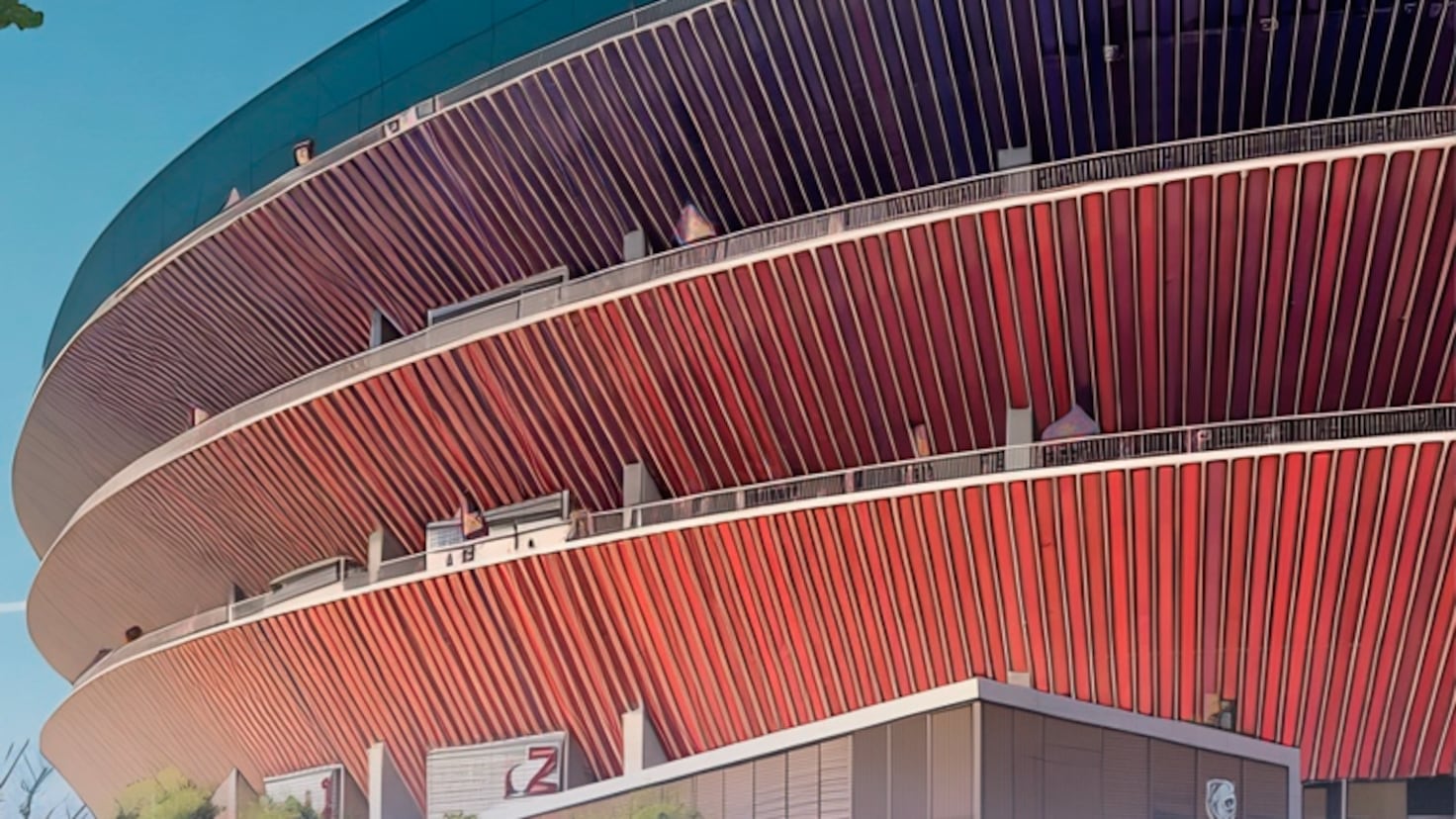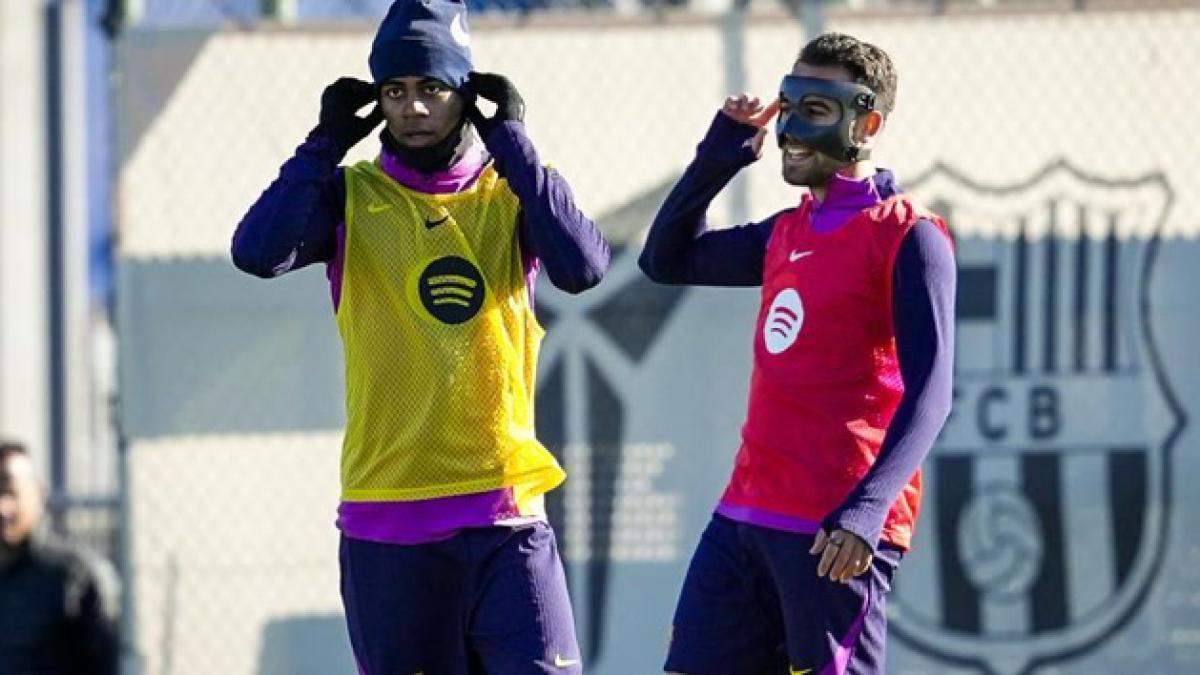Will the Spotify Camp Nou Reopening Be a Glorious Return or a Total Farce?
Let’s be brutally honest, folks. Barcelona’s ‘grand’ return to the partially re-opened Spotify Camp Nou isn’t some quaint little party with finger foods and polite applause. Oh no, not by a long shot! This — this right here — is a make-or-break moment, a gladiatorial return to the coliseum after two years of wandering the wilderness (Montjuïc, for crying out loud!), a period that felt like an eternity for the true believers. We’re talking about a club, a philosophy, a way of life that has been tested, scrutinized, and frankly, mocked by the usual suspects in the media and beyond. The question isn’t just if they’ll win; it’s if they’ll show us they still remember what it means to be Barça, to fight for something bigger than themselves (and a few measly sponsorship deals).
After Two Years, Is This Just a Stadium, or the Very Soul of Barça We’re Talking About?
Look, they call it a ‘stadium,’ but for us, the faithful, the socios who bled blue and scarlet for generations, Camp Nou isn’t just concrete and steel. It’s hallowed ground, the beating heart of Catalonia, a place where legends were forged and empires crumbled (mostly ours, lately, if we’re being fair, but that’s a story for another day). To be exiled, even temporarily, felt like a part of us was ripped away, a limb amputated, leaving a phantom ache. We watched our boys play in a temporary home, a borrowed shirt, and it just didn’t feel right, did it? The echoes weren’t the same, the roar muted, the magic diminished. Now, they’re coming back. This isn’t just a game; it’s a pilgrimage, a defiant march back to reclaim what was always ours, to prove that even after the deepest cuts, the spirit of Barcelona endures, untamed and unbowed by the suits and the schemers who wish to see us fail.
The implications of this two-year sabbatical are vast, touching every nerve ending of the club’s complex psyche. Imagine being a lion, forced out of its den, made to hunt on unfamiliar territory. That’s been Barcelona. The financial strain of the Espai Barça project, the constant travel, the logistical nightmares – these aren’t just footnotes in a financial report; they’re battle scars, visible and invisible, on every player, every staff member, and most importantly, every single supporter. The psychological toll of not having that home advantage, that impenetrable fortress where opponents simply folded under the sheer weight of history and expectation, has been immense. We’ve seen it in the Champions League, haven’t we? Away from our true home, we often looked… well, let’s just say ‘less than ourselves.’ This return, therefore, isn’t merely about convenience; it’s about psychological rearmament, a rallying cry for a team and a fanbase desperate to reclaim their dominant narrative, to show the world that the whispers of our demise have been greatly exaggerated.
Are We Supposed to Just ‘Hope’ for a Win Against Athletic, or DEMAND It?
Hope? Hope is for the faint-hearted, for the opposition, for the armchair critics who delight in our every misstep! We don’t hope; we expect, we demand, we roar! This isn’t some friendly scrimmage against a relegation-bound minnow. This is Athletic Club, a team steeped in tradition, fiercely proud, and always, always a thorn in our side. They don’t come to Camp Nou (or whatever temporary abode we’ve been forced into) to roll over. They come to scrap, to fight, to bloody our noses, and they’ve got a history of doing just that, haven’t they?
This match isn’t just Jornada 13; it’s a statement of intent. It’s the ultimate test of character. Xavi and the lads have been talking a big game, about ‘reinaugurating’ the stadium with a victory, about ‘reducing the distance’ to Real Madrid. Well, the time for talk is over. The writing’s on the wall. This isn’t just about three points; it’s about sending a clear, unequivocal message to everyone – to the rest of LaLiga, to the European powerbrokers who’ve written us off, and most importantly, to ourselves: Barça is back, and we mean business! Anything less than a dominant, undeniable win is simply unacceptable. We’ve waited too long, endured too much, for anything less than a resounding declaration of power.
What Does This ‘Morbo’ and ‘Liderato’ Talk Really Mean for the Club’s Future?
Ah, ‘morbo’! The delicious, spicy intrigue that makes Spanish football so utterly captivating. It’s the drama, the tension, the sheer audacity of it all. This game is dripping with it. The return home, the pressure of a title race, a formidable opponent – it’s a cocktail designed to either intoxicate us with triumph or drown us in despair. And ‘liderato’? That’s the big enchilada, isn’t it? Real Madrid, sitting pretty at the top, smug as ever, probably chuckling at our ‘remodeling project’ and hoping we stumble. Well, we can’t let them have the last laugh, not now, not ever. This game is a direct challenge to their perceived superiority, a gauntlet thrown down in the face of the establishment’s chosen darlings.
The future of this club, both short-term and long-term, hangs in the balance with performances like these. A resounding victory here isn’t just about closing the gap on Madrid; it’s about injecting belief, galvanizing a squad that sometimes looks a bit… hesitant, shall we say? It’s about building momentum, about proving that Xavi’s project isn’t just talk and pretty passing, but actual winning football, the kind that strikes fear into the hearts of opponents. Conversely, a slip-up, a draw, God forbid a loss – that could plunge us into an abyss of doubt, allowing the vultures to circle, strengthening the narrative that Barça is a shadow of its former self, still reeling from past mistakes. The consequences are dire, touching everything from player morale to potential transfer targets, even the perceived appeal of the club to future generations of fans and investors. This isn’t just a game; it’s a referendum on our trajectory.
Is the ‘Partial Reestreno’ with 45,000 Fans Enough to Ignite the Old Fire?
Forty-five thousand. It sounds like a lot, doesn’t it? But compared to the nearly 100,000 capacity of the Camp Nou we remember, it’s just a fraction. A tantalizing taste of what’s to come, perhaps, but is it enough to truly recreate that legendary atmosphere? Can 45,000 voices generate the same earthquake of sound that sent shivers down the spines of opposition teams in our glory days? Will the magic be there, or will it feel like a dress rehearsal? The cynical among us (and let’s be real, there are plenty) might say it’s a half-measure, a compromise, just another example of the club having to make do in these straitened times. But for the optimists, the true believers, those 45,000 faithful souls represent the vanguard, the chosen few entrusted with the sacred duty of roaring our team to victory, of reminding them what it means to play for the badge, to play for the culés, to play for Catalonia!
The symbolic weight of those 45,000 fans cannot be understated. They are not merely spectators; they are participants, tasked with reigniting a flame that has flickered but never died. Their energy, their passion, their collective will – these are the intangible assets that turn a good team into a great one, that transform a mere stadium into an impregnable fortress. Think of the roar when the first goal goes in, the collective gasp at a missed opportunity, the defiant chants against injustice (because let’s face it, there’s always injustice!). This isn’t just about noise; it’s about communion, a spiritual connection between the stands and the pitch, a shared destiny. If those 45,000 can truly become one, a single, unified force, then yes, it will be more than enough to ignite the old fire, to send a tremor through the foundations of European football, and to remind everyone that even a partial Camp Nou is more formidable than any other full stadium in the world. It’s a statement about resilience, about enduring loyalty, about a fanbase that shows up, come hell or high water, to support their beloved club, regardless of the odds or the temporary inconveniences. Those 45,000 are the embodiment of the club’s unwavering spirit, a beacon of hope for the full return.
So, What’s the REAL Story Here? Is This a ‘Return to the Future’ or a Nostalgic Illusion?
‘Return to the future,’ they say. Sounds fancy, doesn’t it? Like something out of a sci-fi flick. But let’s cut through the corporate jargon and get to the heart of it. Is this a genuine leap forward, a rebirth, a new era for Barcelona built on solid foundations and grand ambitions? Or is it just a fancy way of saying we’re still grappling with the ghosts of the past, trying to recreate a glory that feels increasingly distant while simultaneously trying to patch up a crumbling financial edifice? The cynic in me (and trust me, he’s a busy guy these days) worries it’s a bit of both – a desperate scramble to project an image of progress while the underlying cracks remain.
The ‘future’ they speak of involves cutting-edge technology, enhanced fan experiences, and new revenue streams, all designed to catapult Barça back to the pinnacle of global football, both on and off the pitch. But let’s not forget the ‘past’ that still haunts us – the mountains of debt, the FFP constraints, the painful departures of club legends, the bewildering transfer policies. This ‘return to the future’ demands not just a new stadium, but a renewed philosophy, a ruthless efficiency in decision-making, and a clear, unwavering vision from the top brass (which, let’s be honest, has been as consistent as a chameleon’s skin color lately). It’s not just about the brick and mortar; it’s about the heart and mind, the strategic genius that once defined us. Will this new, shiny, partially-open Camp Nou inspire that genius, or will it merely serve as a very expensive reminder of the challenges that still lie ahead? The next few seasons, starting with this crucial homecoming, will be the true litmus test, separating the hopeful rhetoric from the undeniable reality. The journey back to the top is fraught with peril, and this re-inauguration is but the first treacherous step on what promises to be a very long and arduous path, a path where every victory is earned, and every defeat is magnified a hundredfold, under the glaring lights of global scrutiny and the weight of immense expectation. Can the ‘new’ Camp Nou be the catalyst for a genuine revolution, or merely a symbol of persistent longing for a bygone era? Only time, and a hell of a lot of fight, will tell.


